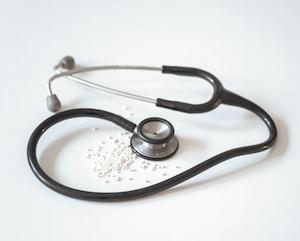The word Pathology comes from a combination of two Latin words, “pathos” and “logos”.
Logos means study and Pathos mean suffering.
So in Latin, Pathology means the study of suffering. A pathologist is a person who is involved in the diagnosis of disorders affecting every organ of the body from birth to after death.

Table of Contents
What Is Pathology in Simple Words?
It is the scientific foundation of all medicine. Its a study of the nature of the disease, causes, processes, development, and consequences [1].
It bridges one end of the spectrum which is the clinical picture that the patient has brought to the doctor and the scientific side right down to the level of individual tissues, cells, and molecules.
People who work in this field specialize in particular areas.
For instance, if you are anemic, a hematologist will find out why.
If you find a lump, a histopathologist will work out if you have cancer or not.
If you have diabetes, a chemical pathologist will plan your treatment.
When you have got an infection, a microbiologist will advise whether or not you need antibiotics and if so, which one.
Key Points-What is Pathology

- Knowledge of the mechanism of disease.
- Preventing, diagnosing, treating and monitoring diseases.
- Diagnosis of clinical conditions in patients.
- Bridges clinical picture of the patient and the scientific side.
- All diagnostic tests are reported by a Pathologist.
Who Is a Pathologist?
Pathologists work in laboratories, clinics, and in-hospital wards.
Their job is to work out what is making someone unwell, advise on their treatment and stop other people from getting ill in the same way.
Furthermore, every blood test, allergy diagnosis, or search for infection involves a Pathologist.

What does a Pathologist do?
Pathologists are involved in the diagnosis of disorders affecting every organ of the body, from birth to after death.
If you ever had a blood test, cervical smear or tissue biopsy, a pathologist will have been involved in your care.
They provide microscopy and other laboratory services (cytology, histology) to clinicians.
Range of Laboratory specialities which are very much involved in the diagnosis of clinical conditions in patients helping the speciality doctors to manage them.
What are the divisions of Pathology?
There are two broad categories:
- Anatomic pathology is related to the diagnosis of disease based on the gross, microscopic, chemical, immunologic and molecular examination of organs, tissues and whole bodies.
- Clinical pathology includes the diagnosis of disease based on the laboratory analysis of bodily fluids (such as blood and urine) and tissues.
Several subspecialties within both fields are given below
Clinical Pathology
- Clinical Chemistry (biochemical investigation of bodily fluids such as blood and urine)
- Cytogenetics (study structure of DNA within the cell nucleus)
- Hematopathology (study blood and bone marrow specimen)
- Hemostasis (involves clinical laboratory research trials related to platelet function and antiplatelet agents.)
- Immunology (the study of the immune system)
- Microbiology (involves diagnostic services for detection and monitoring of viral infections, and determination of immune response to viral antigen exposure)
- Molecular Pathology (employs testing of nucleic acids (DNA and RNA) for disease diagnosis)
- Transfusion Medicine (provides medical consultations for transfusion practice, patient blood management and immunohematological testing)
Anatomic Pathology
- Autopsy (includes autopsy dedicated pathologists who are highly skilled in the correlation of clinical disease to the physical and microscopic findings discovered at autopsy)
- Breast Pathology (plays a central role in the multidisciplinary care of patients with diseases of the breast)
- Cytopathology (plays a very significant role in the diagnosis and management of patients, in collaboration with interventional radiologists, pulmonologists, gastroenterologists, oncologists, surgeons, internists, gynaecologists, endocrinologists and otolaryngologists.)
- Gastrointestinal Pathology(including the gastrointestinal tract, liver, biliary tract (ampulla-biliary tract and gallbladder) and pancreas — is a recognized sub-speciality discipline of surgical pathology.)
- Genitourinary Pathology (refers to the urinary and genital organs)
- Gynecologic Pathology (study and diagnosis of disease involving the female genital tract)
- General Surgical Pathology (focus on education, research and Feinberg-affiliated clinical services related to the definitive diagnosis of disease in any case where tissue is surgically removed from a living patient.)
Heath Related Links
Fig Fruit| Health Benefits
Raspberries| Health Benefits
What Is Manuka Honey?| Health Benefits
What Is A Keto Diet| Zero Carb Popular Food
Body’s Preferred Source Of Energy
Summary
This article explains the question ” what is pathology”.
Pathology is the study of diseases caused by structural, biochemical, and functional changes within cells, tissues, and organs. It is a bridge between basic sciences and clinical medicine.
It is the explanation of the signs and symptoms manifested by patients and it provides a rational basis for clinical care and diagnosis.
A pathologist’s role involves the diagnosis of disorders affecting human body organs from birth to after death.
Recommend Video-Role of Pathologist
Frequently Asked Questions
Histology refers to the microscopic study of cells and biological tissues.
It s the diagnosis and study of diseases of the tissues,
Pathology is the study of the causes and effects of diseases. It is the branch of medicine that deals with the laboratory examination of samples of body tissue for diagnostic or forensic purposes.
A pathologist is a person who examines bodies and body tissues. He is responsible for performing lab tests. A pathologist studies the causes, nature, and effects of the disease.

This article was written by Sana Javed, Hospital Pharmacist, THQ Hospital, Kharian, Pakitan. She has been a part of whatsinsight.org since 2020.
More Interesting Topics
Alliteration Definition
Energy of Light
Crest of a Wave| Wave Properties| Easy Key Points
What Is an Au Pair|Au Pair Meaning & Average pay
Electric Field Units & Definition
Displacement| Physics
- BCl3 Lewis Structure in four simple steps - November 1, 2023
- PH3 Lewis Structure in four simple steps - October 8, 2023
- PF3 Lewis structure in four simple steps - September 24, 2023



